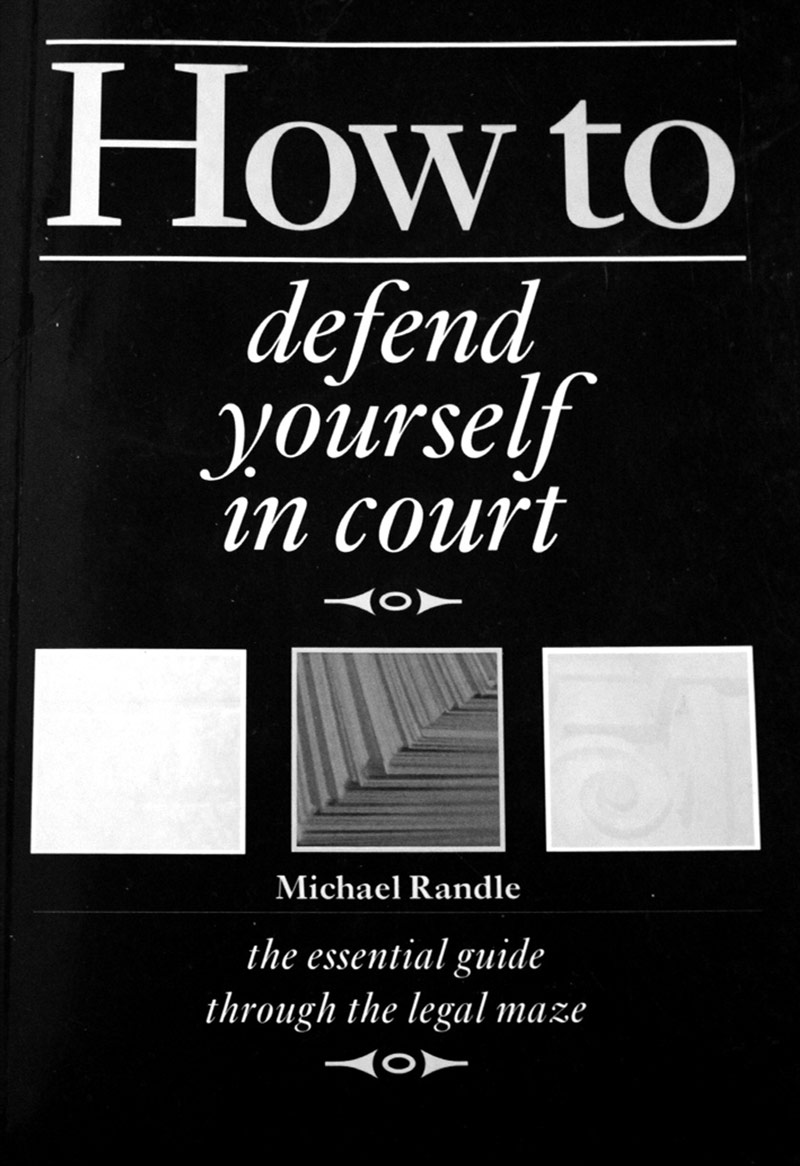
Book Reviews
How To Defend Yourself In Court
by Michael Randle
Civil Liberties Trust, 1995.
Review by Sean MacSweeney
Squall 12, Spring 1996, pg. 59.
In 1991 Michael Randle and Pat Pottle defended themselves successfully in the Old Bailey, citing the 1688 Bill of Rights. Randle has put the experience to good use in compiling this handbook, which is also intended for those instructing a lawyer (or consulting one, which may be wise in certain matters even if a self-defendant). It is clearly laid out, with references, a glossary, recommended reading and contact addresses. It is bang up to date, with relevant CJA info and a reminder that, soon, advance disclosure of the defence’s case could be obligatory. A couple of useful flow diagrams help the reader understand the order of events in court and the appeals system.
Advantages to self-representation are emphasised: you can urge the jury to ignore the law in favour of “justice”, whereas a barrister cannot and the judiciary tend to allow you greater latitude with regard to procedures and the propounding of moral arguments.
These are vital when running a “political” defence - which often represents the best chance for campaigners and protesters. Various approaches are outlined, based on common, statute and international law, and sample cases summarised to illustrate them. The author is aware, throughout, of the importance of publicity in a campaign trial (best obtained by a not-guilty plea, rather than one of mitigation).
There is important advice on such matters as points of law (eg admissibility of evidence): it might be in your interest to ask for the jury to be present in such discussions. (Strangely, though, there is nothing on grounds for objecting to questions in court.) How to prepare yourself for the ordeal, when it is permissible to ask leading questions, explanations of a Newton hearing, a McKenzie friend and a hostile witness - it’s all here.
Well - it’s fine me writing all this - but more valuable insights might come from someone who has the sort of experience this book aims to prepare you for: Frances Vigay is one of a group of women from Greenham Common who have defended themselves against charges of criminal damage and criminal trespass. In two cases the charges were dropped, and two current cases have gone to appeal. Frances felt that this book would certainly help the self-defendant prepare for the unfamiliar experience of the courtroom, give them confidence and increase their resistance to the pressures of the occasion... “But,” she went on, “the author is over-cautious about trials beyond the magistrates court, often almost dissuading the reader from going it alone. Certainly, the risks are greater, but other factors are largely the same and a political defence is often best carried out without representation.
“A more serious criticism concerns the selection of sample cases. In the largest and most sustained resistance to nuclear weapons in this country, hundreds of women have represented themselves in court, yet not one Greenham trial is mentioned. The Jean Hutchinson and Georgina Smith case in particular was a landmark, going through four courts over three years, and resulting in a victory in the House of Lords which reversed the law on trespass under military byelaws. Hutchinson represented herself throughout.
“These reservations apart, however, I think the book would be very valuable for someone about to defend themselves for the first time.”
(£4.99 + 50p p&p from the Civil Liberties Trust, 21 Tabard Street, London SE1 4LA)
Finally, I should rectify an oversight: in my review in Squall 10 I neglected to give a mail order address for Lucas and Murdie’s Defending Your Freedom (another useful guide to the criminal justice system), so here it is: LRC Services, PO Box 2764, London E9 7EJ. Send £5 to receive your copy.
Sean MacSweeney
